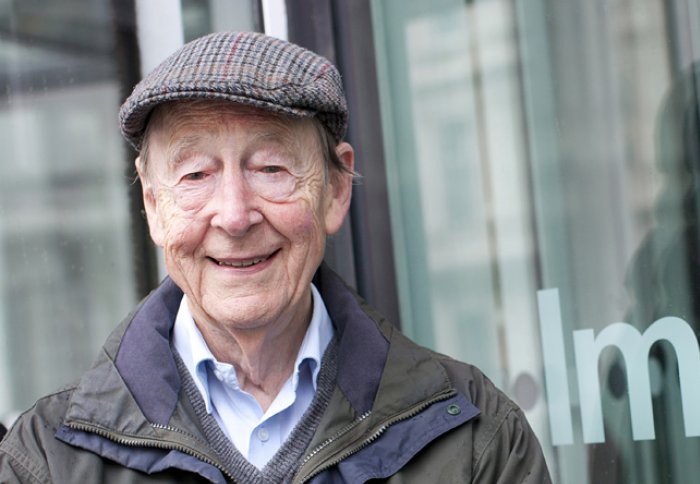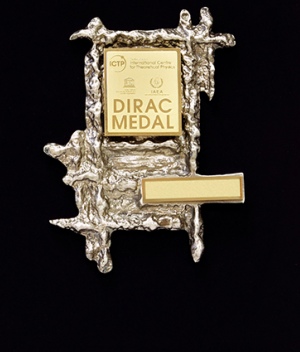Tom Kibble receives the Dirac Medal for Higgs theory
by Simon Levey

Imperial's Tom Kibble is one of three scientists celebrated with an award named after Paul Dirac, 'one of the greatest physicists of the 20th century'
The prizes were announced yesterday by the Abdus Salam International Centre for Theoretical Physics (ICTP) in Italy. First awarded in 1985, the Dirac Medal is given to scientists who have made significant contributions to theoretical physics and carry a prize worth $5000 for each awardee.

The Dirac Medal of the ICTP
An eminent theoretical physicist, Emeritus Professor Tom Kibble CBE FRS has received this award for work in the 1960's that led to the concept of a mass-giving particle now known as the Higgs boson, and proved a key feature of the standard model of particle physics.
He shares the 2013 Dirac Medal with two other world-leading physicists whose combined work has deepened our understanding of the universe: Martin Rees, the Cambridge astrophysicist who holds a Visiting professorship at Imperial as well as the honorary position of Astronomer Royal. He is best known for research into black holes and the formation of the earliest stars and galaxies.
Also honoured is Jim Peebles, a cosmologist at Princeton University in the USA who pioneered work on the Cosmic Microwave Background, radiation emanating from the Big Bang.
Professor Kibble said: "It is always very gratifying to have one's work recognized by other physicists. This award is particularly special for me because of its association with my former colleague and inspiration, Abdus Salam, who founded the ICTP, and also because the other medallists this year are two astronomers for whose work I have the greatest respect, James Peebles and Martin Rees. To be listed alongside them is a real honour."
Article text (excluding photos or graphics) © Imperial College London.
Photos and graphics subject to third party copyright used with permission or © Imperial College London.
Reporter
Simon Levey
Communications Division